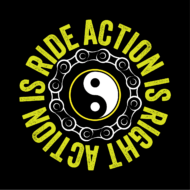I’ve been a Rush fan since high school. Being a drummer I was attracted by that, then eventually got into Neil’s lyrics. He influenced me in so many ways. He made me realize rock musicians could be smart. He got me to read again. I wrote poetry.
Over the years I have owned all the albums on CD and cassette. I’ve read all his books. Several times. I’ve read all the magazine articles. I own the DVDs. As I mentioned on my About page,
Rush albums mark and coincide with distinct periods of my life and I have memories of time periods that jive with each release.

In contrast to many celebrities, he’s always been an intensely private guy – a weirdness with fame that he addressed in songs such as ‘Limelight’.
“Living in a fisheye lens
Caught in the camera eye
I have no heart to lie
I can’t pretend a stranger
Is a long awaited friend”
Though he shared little, what he did share was thoughtful, thought-provoking, and at times brutally honest. I felt like I did know him, ironically – though that’s far from the truth.
What I do know is that he aimed to live a full life – and inspired others, including me, to do so as well. In this capacity he far surpassed simply ‘being a drummer’ – even if he happened to be one of the best of all time. An article in Rolling Stone at the end of their last tour summed it up:
Neil Peart likes to ask himself a couple of key questions. One is “What is the most excellent thing I can do today?” The answers lead him to travel between Rush’s shows on a BMW motorcycle instead of a plane or bus (creating scheduling nightmares for the band’s management), and to embark upon extracurricular bicycle trips through West Africa and China and Europe. He aims to fill every minute of his life with as much much-ness as possible, which may also help explain all those 32nd notes.
While I am sad at his passing – it is too early, the paradox is that this supremely private man still had so much worthwhile to share with us, musical or otherwise – I know that Neil managed to cram several lifetimes into his unfortunately abbreviated one and for those of us that remain remembering him, that is his last lesson and reminder to all of us.
Get out and find as much much-ness as you can my friends, and perhaps pause a beat once in awhile in the rhythm of life to remember those that have inspired us and moved on.

